Meet the teenage Senegalese jockey racing to fame
Fallou Diop won the country’s top racing prize at just 17
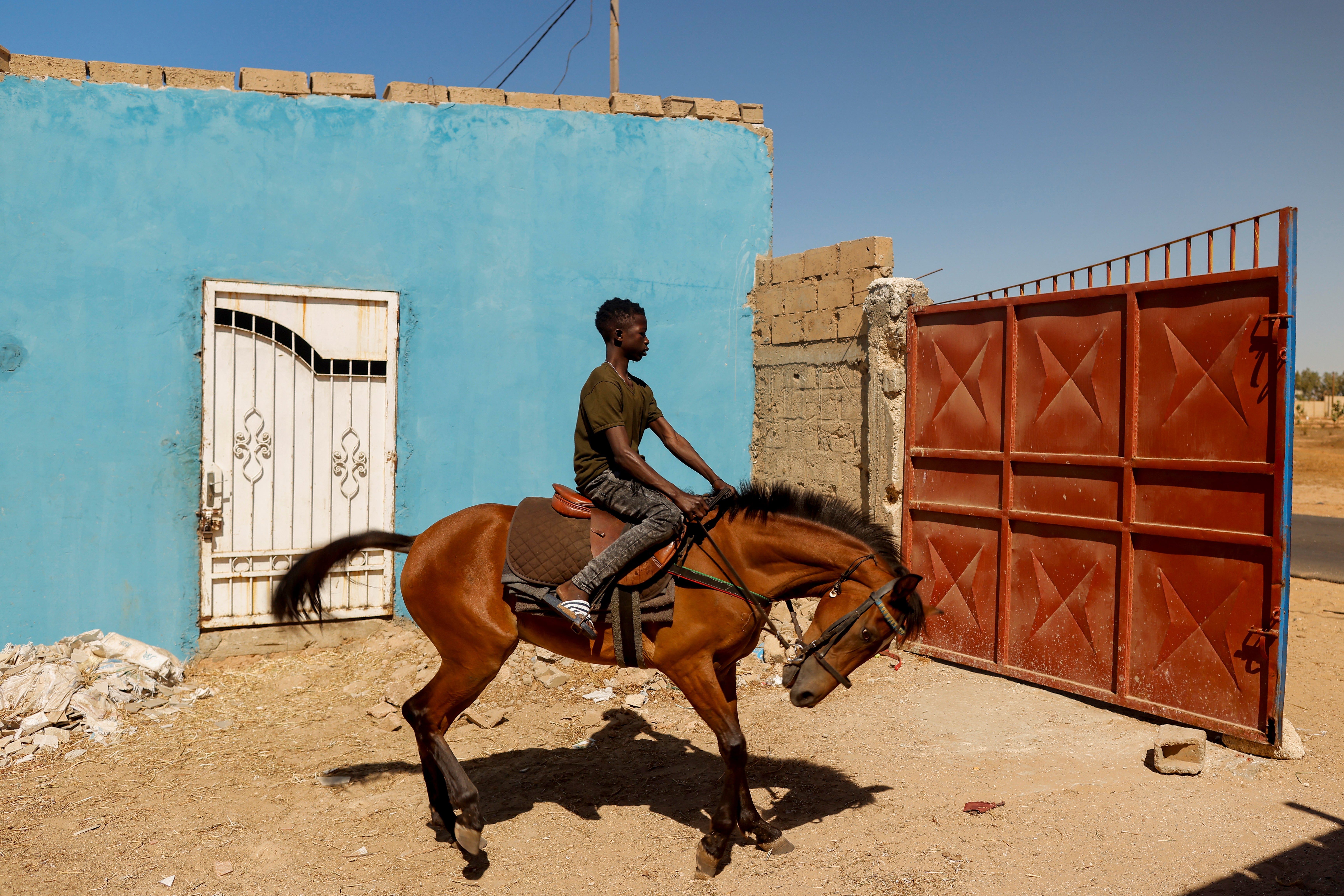
Your support helps us to tell the story
From reproductive rights to climate change to Big Tech, The Independent is on the ground when the story is developing. Whether it's investigating the financials of Elon Musk's pro-Trump PAC or producing our latest documentary, 'The A Word', which shines a light on the American women fighting for reproductive rights, we know how important it is to parse out the facts from the messaging.
At such a critical moment in US history, we need reporters on the ground. Your donation allows us to keep sending journalists to speak to both sides of the story.
The Independent is trusted by Americans across the entire political spectrum. And unlike many other quality news outlets, we choose not to lock Americans out of our reporting and analysis with paywalls. We believe quality journalism should be available to everyone, paid for by those who can afford it.
Your support makes all the difference.A head shorter than his peers, Fallou Diop quickly vanishes into the crowd of jockeys preparing for early morning drills in the western Senegalese village of Niaga.
When the racing begins, however, his crouched silhouette is far ahead of the field, aided by an effortless riding style.
Diop says: “When I start riding I get a bit stressed but after a moment, it’s over. At the time of the race, I’m only thinking of victory.”
Diop is one of Senegal’s most promising jockeys, having won the country’s top racing prize when he was just 17. He hopes to begin racing in France next year, realising a dream coveted by some of Senegal’s foremost riders.
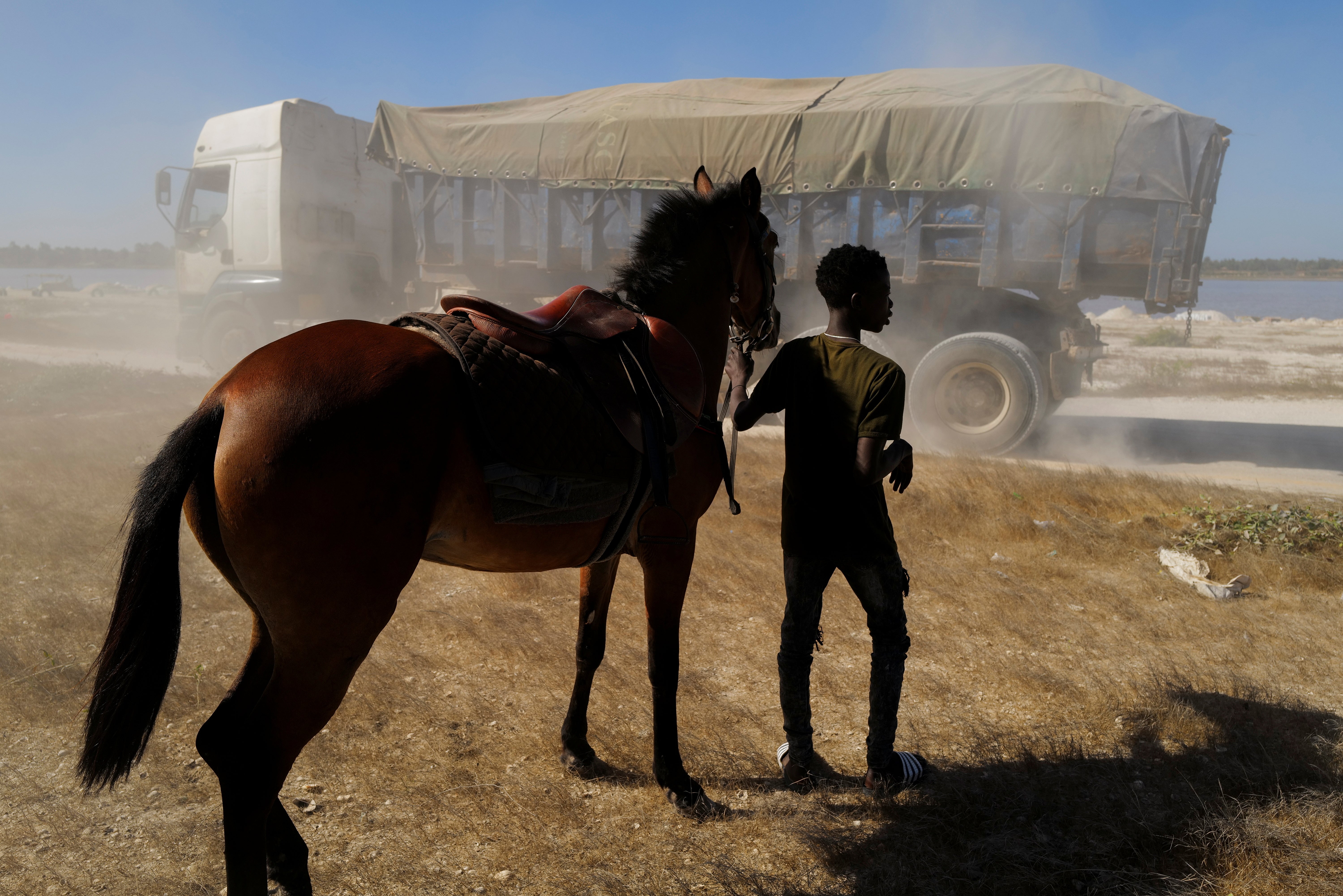
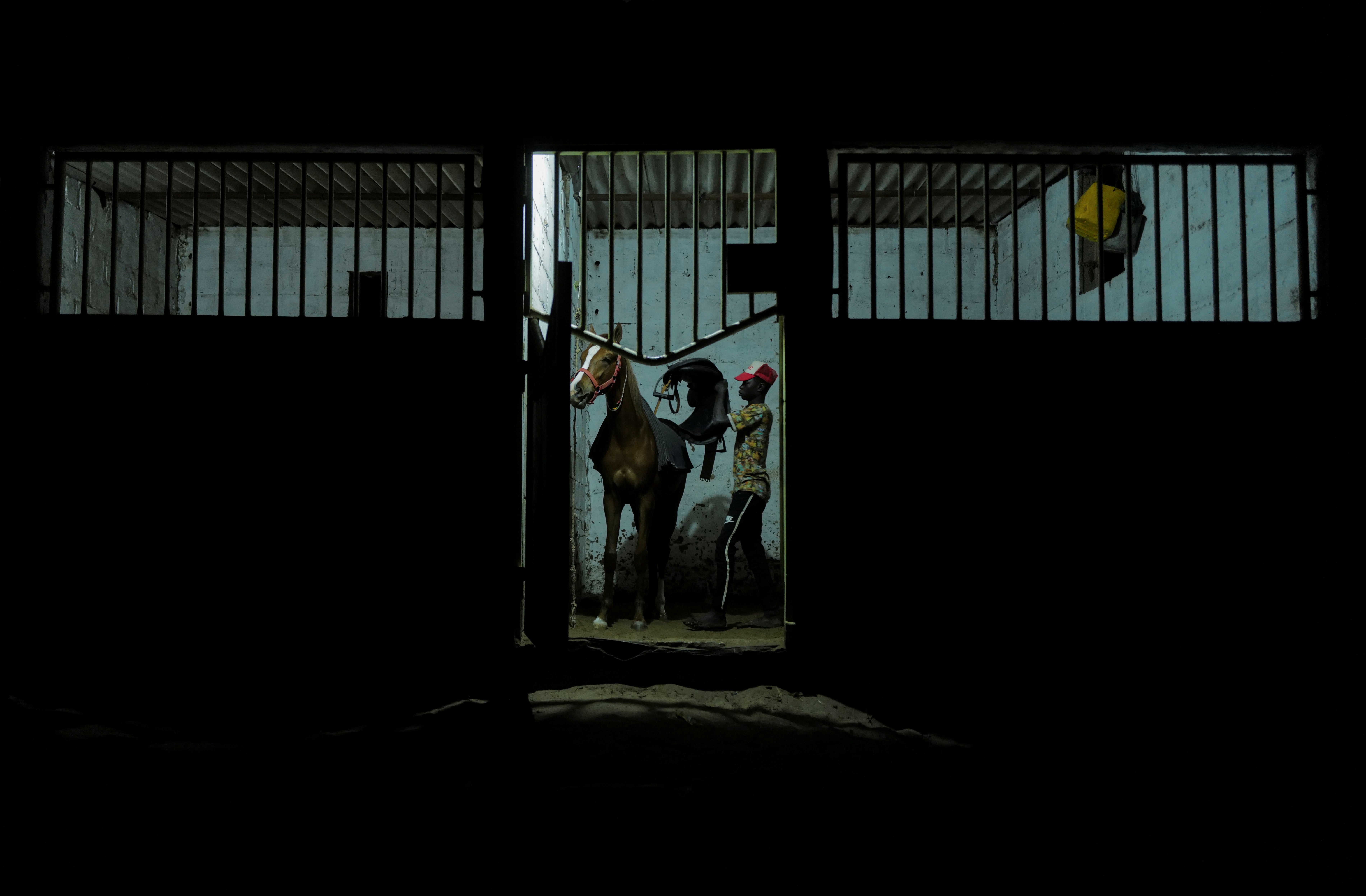
Horses are an integral part of life in Senegal. Horse-drawn buggies are ubiquitous and over the past 50 years competitive racing has developed into a national pastime.
Read more:
Diop says: “It’s a passion in my family. Since my grandfather we’ve supported horses, then my father after him.”
In villages such as Niaga, where Diop lives, horse feed and supply shops line the main roads and fields are dotted with men on horseback.
Adorned with colourful ceramic tiles on a busy back street, the house Diop shares with 12 family members is getting a new roof thanks to the money from his winnings.
Depending on the number of horses in a race, Diop can earn up to £435 per victory. Average monthly wages in Senegal were estimated at around £130 at the end of 2019.
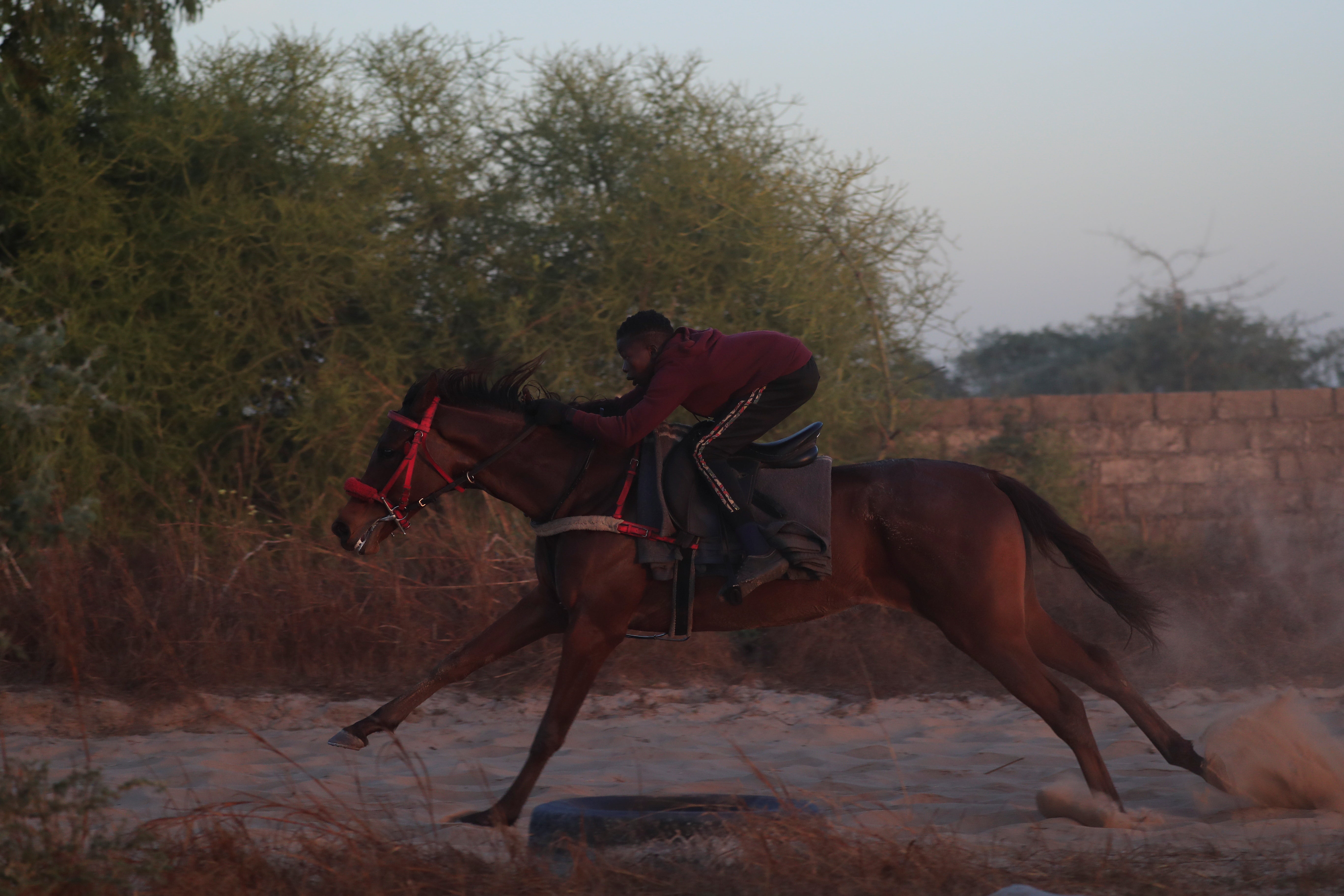
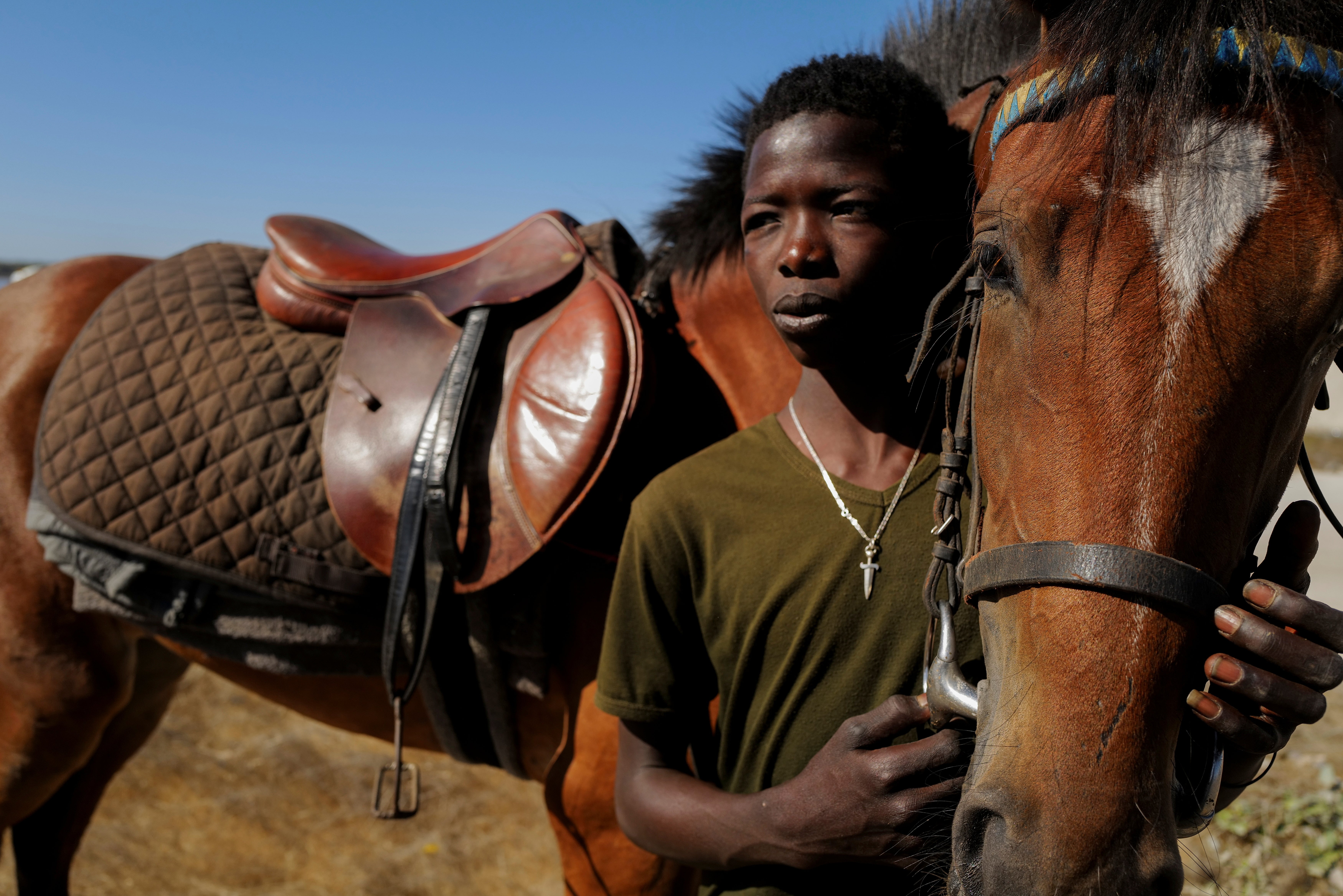
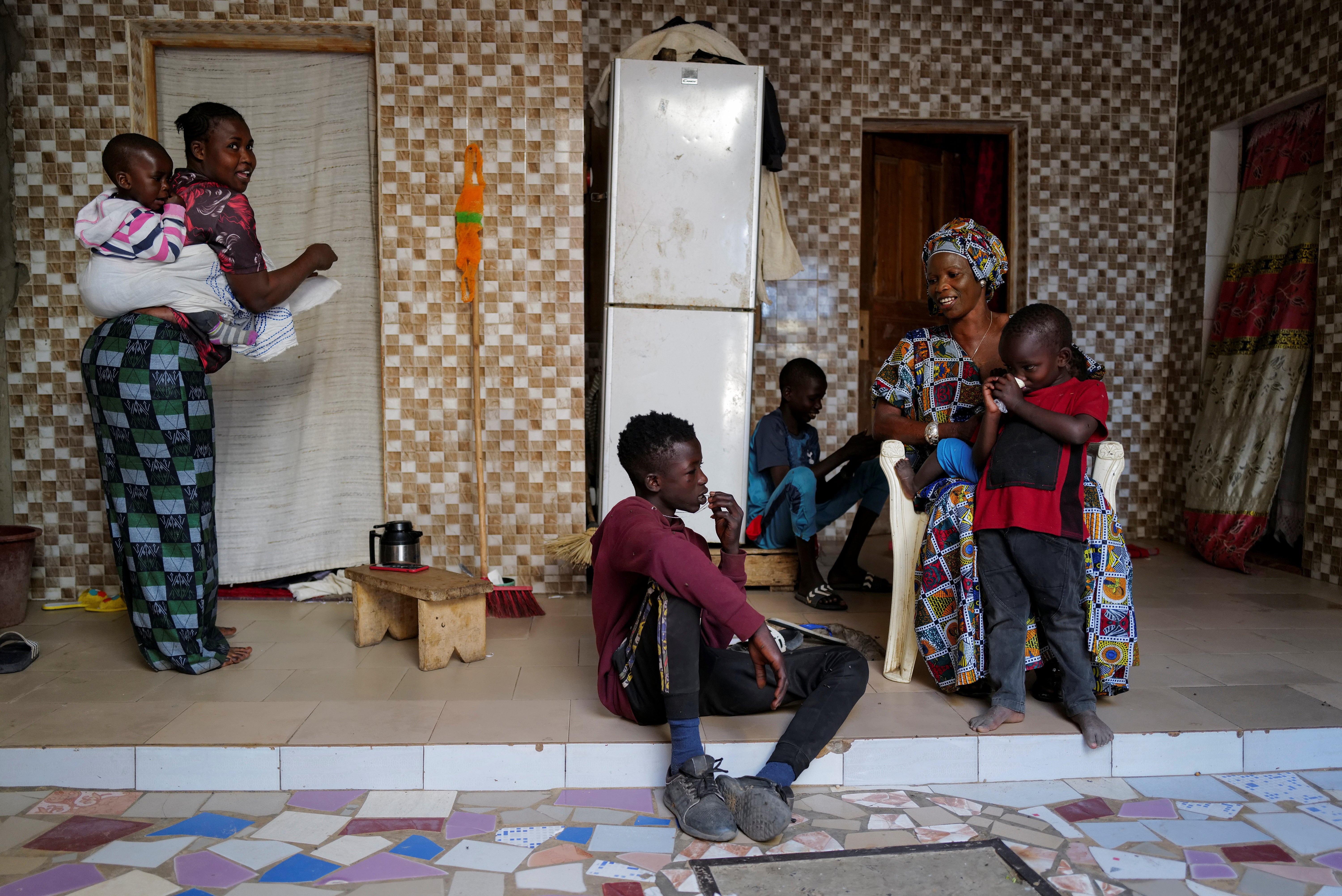
Diop’s success is a source of pride for his father, who spent much of his life driving a horse and buggy around Niaga. His older brother, who also hoped to be a jockey before a growth spurt got in the way, boasts of Diop’s achievements to visitors.
Diop says: “It’s the elders who taught us everything since we were young and that’s how I became passionate about horses.”
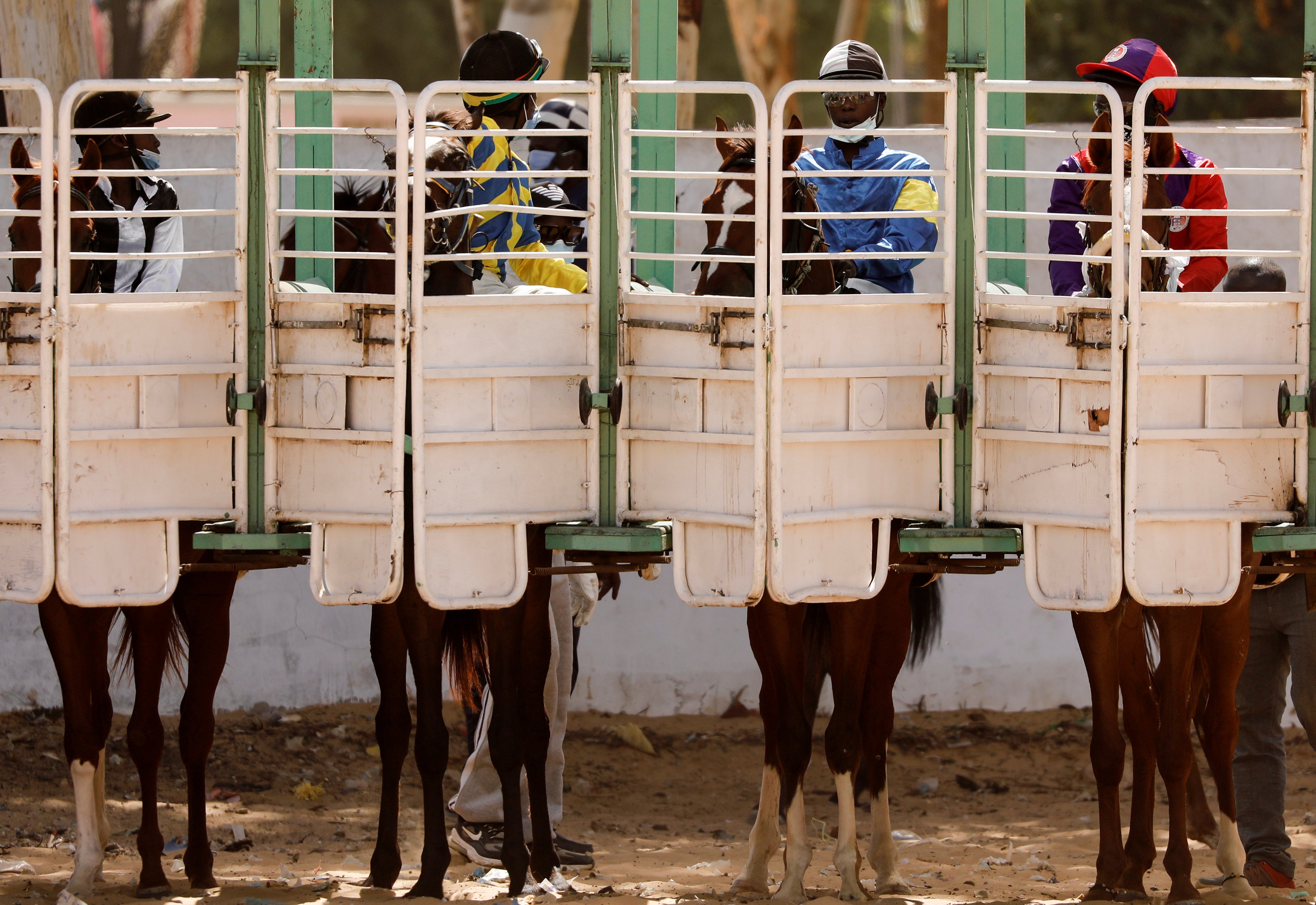
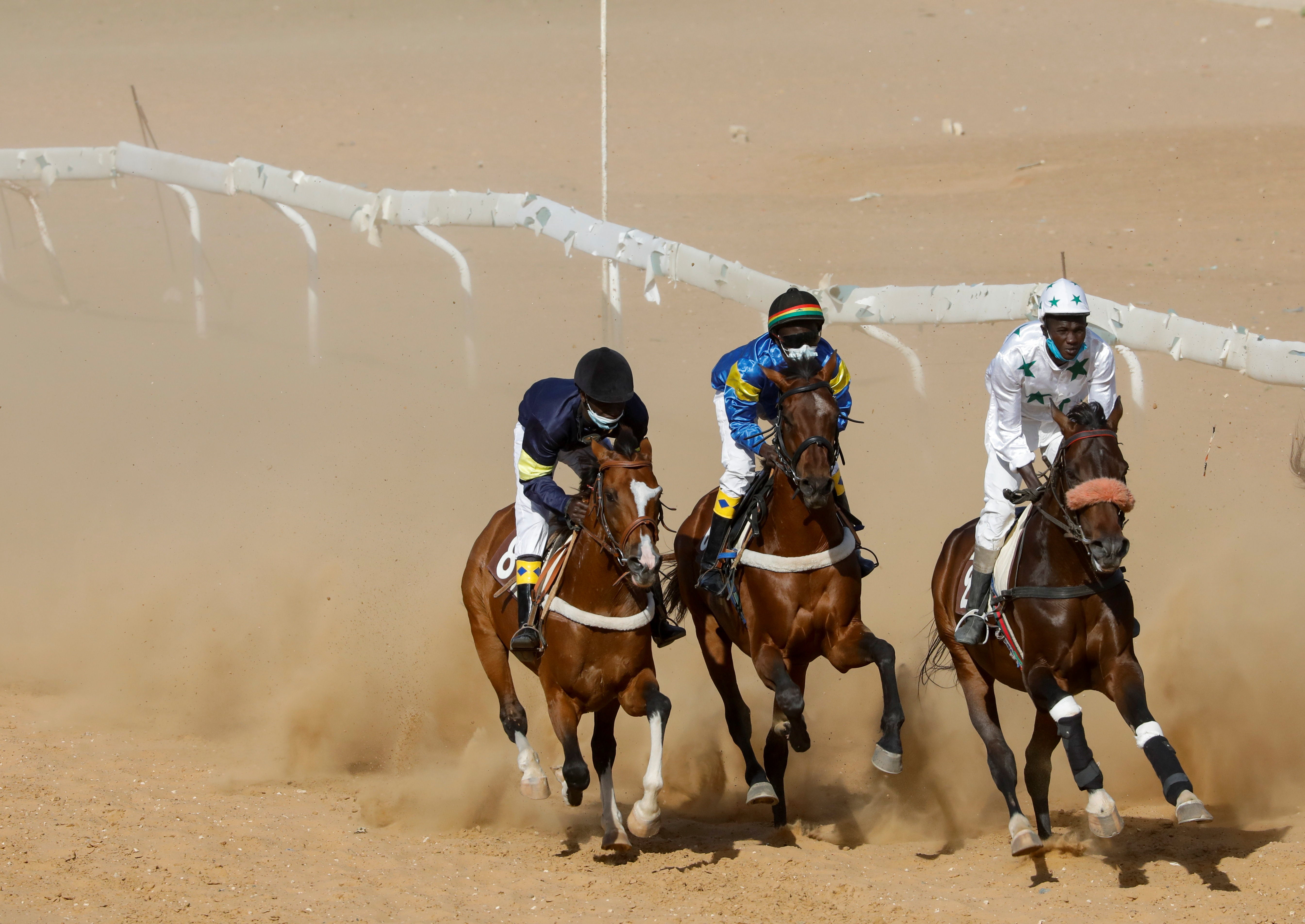
Diop, who has dropped out of formal schooling, was 12 when he left a tailoring apprenticeship to pursue racing. According to his father, he was so determined that he walked 10 miles to enrol in the nearest training programme.
Today, Diop and other jockeys in Niaga are taught by Adama Bao, whose family has maintained a stud farm near the salty shores of Senegal’s Lac Rose for three generations.
Bao says: “[Diop] is very gifted. He could compete up to 50 with his weight and size.”
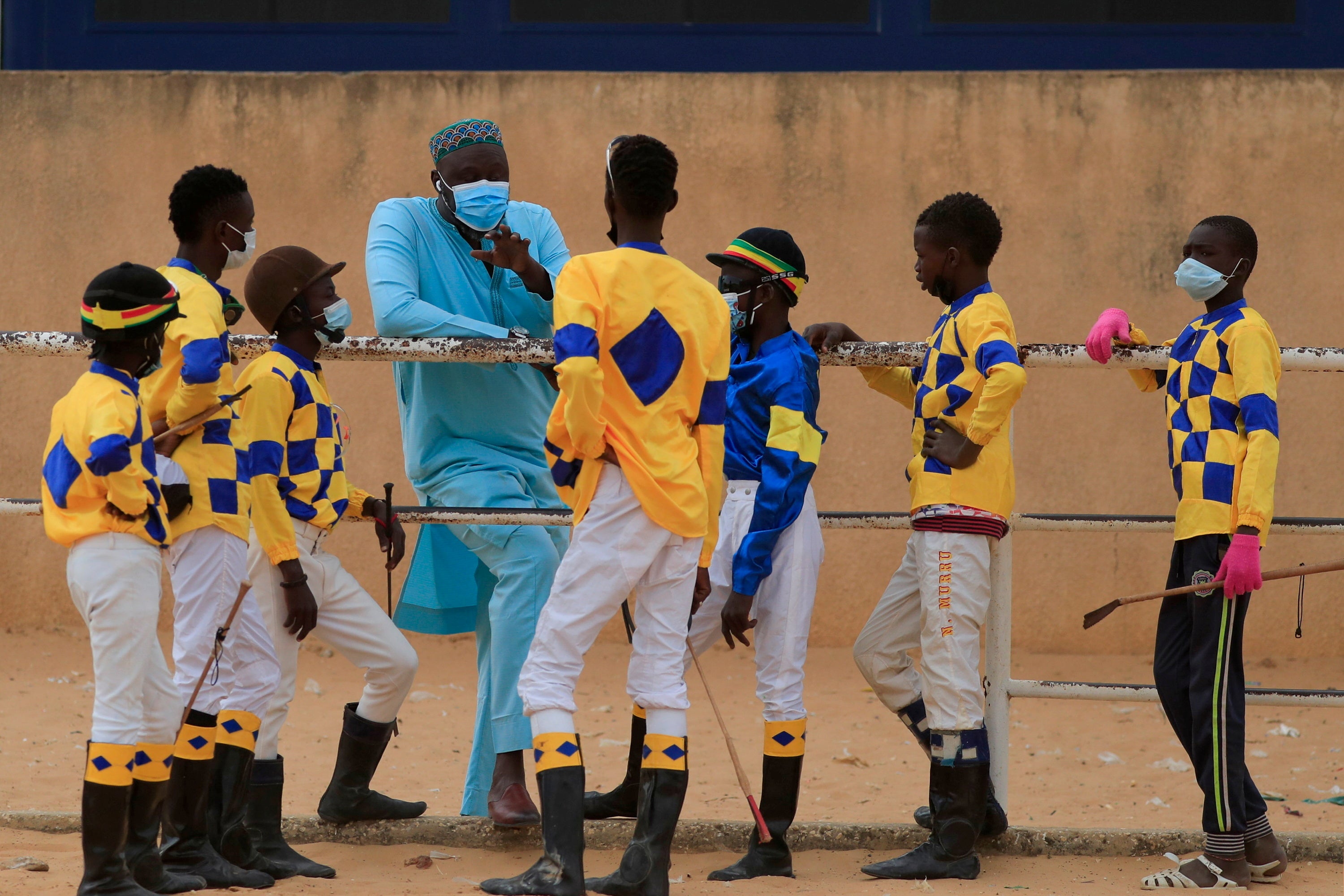
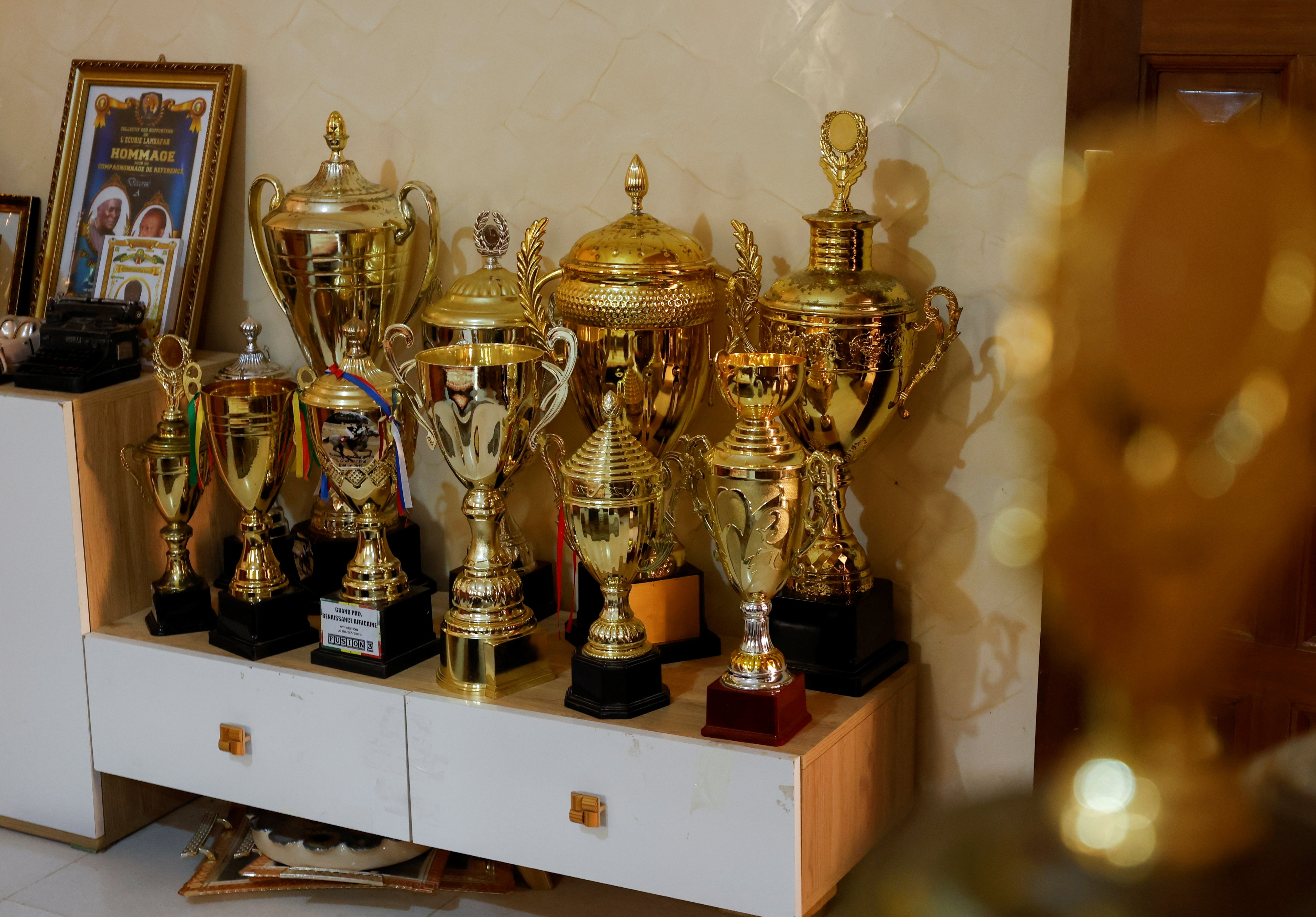
Bao plans to send Diop to France for three months in early 2022 to race for a French-Senegalese breeder. He would have travelled last year, Bao says, if not for the pandemic.
On a Sunday afternoon, Diop’s skills were recently put to the test at the course in Thiès, Senegal’s third-largest city.
Dressed in vibrant yellow and blue, Diop calmly mounted his steed and led it towards the start.
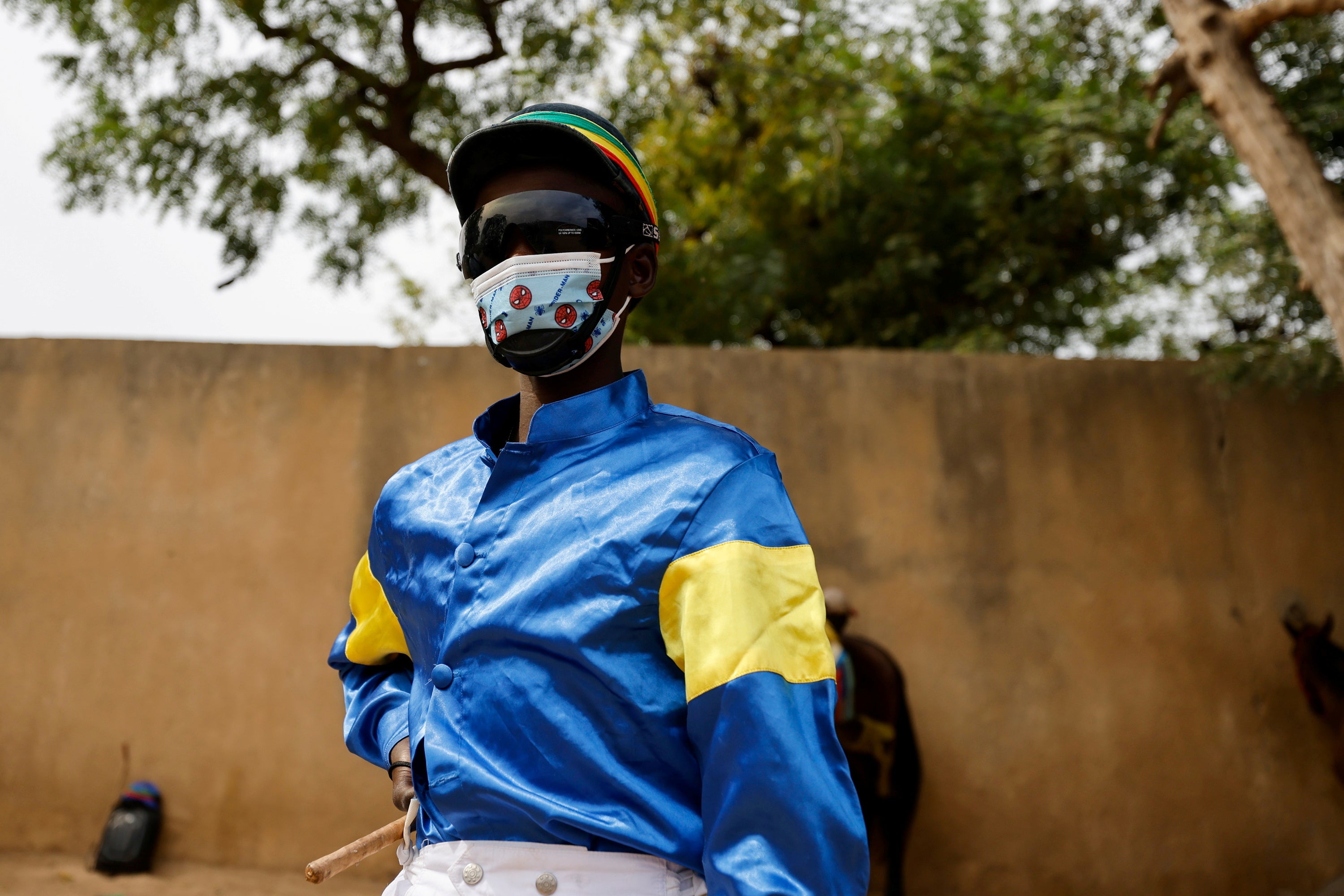
Diop went on to finish first in three of his five races that day, taking home nearly £730 in winnings.
“I want to be the best jockey in a country other than mine,” he says. “In Morocco or France, anywhere there is horse racing.”
Reuters, photography by Zohra Bensemra
Join our commenting forum
Join thought-provoking conversations, follow other Independent readers and see their replies
Comments